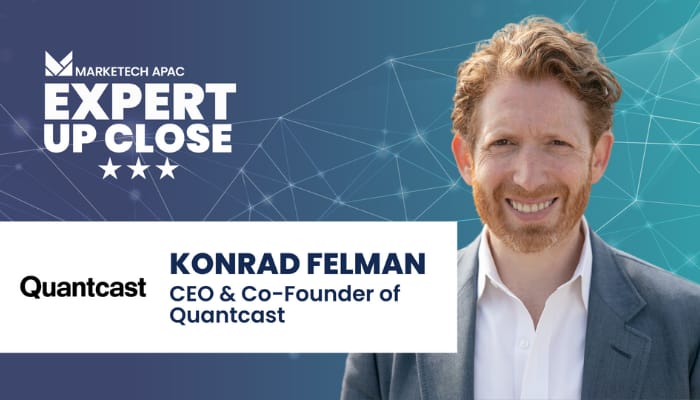Omnichannel solutions have become essential for organisations hoping to provide smooth and consistent consumer experiences in today’s quickly changing digital market. In contrast to conventional multichannel methods, which frequently function in isolation, omnichannel tactics incorporate every consumer interaction point—website, physical store, social media, and mobile applications—into a single and seamless experience.
In more recent years, artificial intelligence (AI) to these solutions has been monumental in terms of effective reach to customers by brands. By leveraging AI, brands can analyse vast amounts of data from various touchpoints to gain deep insights into customer behaviour and preferences. This data-driven understanding enables brands to personalise interactions at an unprecedented scale, offering tailored recommendations, targeted marketing campaigns, and proactive customer support.
To learn more about the role of AI in optimising current omnichannel strategies for both brands and marketers, we sat down with Asnawi Jufrie, Vice President & General Manager of Southeast Asia at SleekFlow as part of our Expert Up Close interview series to discuss the trends and technologies influencing the future of omnichannel, and how is SleekFlow contributing into developing new measures for effective omnichannel strategies.
What will influence the future of omnichannel
To begin the discourse on improving omnichannel experiences, Jufrie stressed that the use of AI in omnichannel experiences is based on doing more with less, as brands are looking to increase their revenue while also reducing costs.
For him, there are three key trends for the future of omnichannel: all-in-one, referring to unified and integrated communication channel solutions for brands; AI-powered conversations that refer to smart choices made by AI model integrations to deliver appropriate messaging to customers; and automated workflows that refer to the seamless communication to customers through integrated messaging like call-to-action and quick replies.
Much of these trends for the future of omnichannel are rooted in the rising success of social commerce, with Jufrie citing a Statista study of how global social commerce sales is forecasted to reach USD$8b by 2030–and certainly a promising space to watch out for.
“Since the e-commerce industry has been growing on a monumental scale, social commerce has been a game-changer, it has reshaped the way people discover, engage with and purchase products online. Consumers are now more than ever inclined to interact with brands on social messaging platforms, such as Instagram, Facebook, and WhatsApp, because that’s where most of their daily personal interactions take place,” he said.
How SleekFlow is responding to omnichannel trends and challenges
Jufrie further noted in the interview that SleekFlow’s strength in providing efficient omnichannel relies on hitting the marketing and sales aspect of the ideal customer persona (ICP). In order to hit the target of ICPs for businesses, he enlists three things that should be on top of mind for marketers: lead generation, lead qualification, and lead nurturing/engagement.
These key takeaways–which are part of the overall omnichannel experience–revolve around the ideal acquisition of a potential customer, sorting out using AI on quality leads for sales, and having current customers stay for the longer run through retention and loyalty strategies.
Meanwhile, the three things that should be on top of the mind of marketers in terms of sales revolve around the SCD acronym: speed to lead, collaboration, and data ownership. As sales teams chase quality leads to convert them into retaining customers, there should also be a system where there is a unified solution that encourages collaboration within an organisation in terms of support and marketing.
“Besides sales and marketing, we also recognise the impact that customer support can bring in lead procurement, engagement, conversion and customer retention. SleekFlow aims to help businesses stay competitive and be closely connected with customers from the beginning to the end, and maintain healthy repeat customer cycles,” he said.
Interestingly, he also shares data that customer conversion from a landing page only accounts for 2%, and only 17% converted from those opening an EDM. However, in the case of chat channels, opening rates on WhatsApp specifically account for almost 98%. The question is: how do you execute an omnichannel strategy that will get addressed immediately by the customer?
“The most important thing here is to make sure [that] you’re giving the right copies, the right people with the right messaging. If you can infuse [with] AI as well, you’re saving a lot of time which reduces your cost [and] enables you to increase your revenue, because you are giving people relevant things,” he explained.
By having an effective chat-driven omnichannel strategy, it relieves the business’ pain point in having to switch between different platforms or tools, so employees can focus on faster, more accurate, and streamlined communication on one single platform. On the other end, customers will also experience a smooth journey from discovery to purchase, increasing sales conversions and brand loyalty.
“SleekFlow incorporates both automation workflows and AI chatbot, along with other AI features such as writing assistant, smart reply and data-driven AI insights and analysis. Sales & marketing teams and customers can benefit from this, as it saves a significant amount of time on all ends, enhancing productivity, optimised engagement, and the overall chat experiences,” Jufrie further explained.
Engaging with customers effectively to build loyalty through AI integration
When there’s a discussion about building loyalty, Jufrie stresses the importance of having the support team also aiding in the process, as they will be responsible for promoting repeated purchases–the ultimate goal of loyalty. For that to happen, brands need to understand customers and let their voices be heard, whether through ratings, surveys and even direct messaging.
“We should be building and improving products and services based on the voice of the customer so we can continually evolve, and continually give the customers what they want so that we promote the whole idea of repeated purchases which allows brands to have better lead procurement, engagements, conversions, as well as retention,” he stated.
Bringing up his previous points, he then stresses how AI integration for these solutions will help brands focus on making data-driven decisions for their omnichannel strategies for customers, adding that leveraging AI data analytics allows brands to gain exclusive insights into customer behaviour, preferences, and market trends. This will then enable brands to make informed decisions and anticipate changing consumer needs.
Moreover, he shares that brands can also invest in AI talent and partnerships, to build a team with AI expertise or partner with AI service providers to embrace newer technologies and place greater attention to the implementation of AI solutions.
“My last advice is “better late than never”. I believe brands should continually position themselves at the forefront of AI integration, drive innovation, and meet the evolving needs of their customers in a rapidly changing market landscape,” he concluded.
Learn more about his insights on omnichannel strategies by checking out the full interview below:







